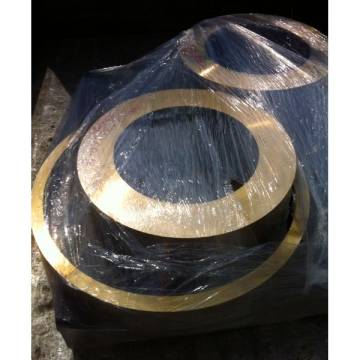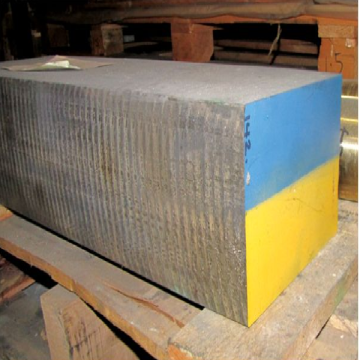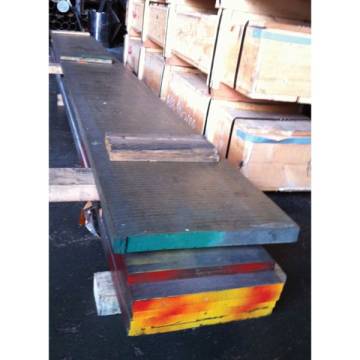Bronze
Phosphor Bronze
Specifications
- JIS 3110- C5191
Summary
- Superb spring qualities
- High fatigue resistance
- Excellent formidability and solder ability
- High corrosion resistance
- Phosphor bronze is notable for its toughness, strength, low coefficient of friction, and fine grain.
- The phosphorus improves the fluidity of the molten metal and thereby improving the castability, and improves mechanical properties by cleaning up the grain boundaries.
- Ideal for springs, contacts, bearing plates and fuse clips
Introduction:
Phosphor bronze is a versatile and widely used alloy known for its excellent combination of mechanical properties, corrosion resistance, and electrical conductivity. Composed primarily of copper (Cu) with phosphorus (P) as the primary alloying element, phosphor bronze offers a unique set of characteristics that make it highly valuable in various industrial applications. Here's a detailed write-up on phosphor bronze:
Composition:
Phosphor bronze typically consists of copper as the base metal, with varying amounts of phosphorus added to enhance certain properties. The addition of phosphorus improves the alloy's strength, stiffness, and wear resistance while maintaining good electrical conductivity and corrosion resistance. The exact composition may vary depending on specific manufacturing requirements and standards.
Properties:
- High Strength and Stiffness: Phosphor bronze exhibits excellent strength and stiffness, making it suitable for applications requiring structural integrity and load-bearing capabilities. It can withstand high mechanical stresses and loads without undergoing deformation or failure, providing reliability and longevity in demanding environments.
- Wear Resistance: Phosphor bronze offers exceptional wear resistance, making it suitable for applications subject to abrasive wear and friction. Its ability to maintain dimensional stability and surface integrity under harsh operating conditions contributes to extended service life and reduced maintenance requirements.
- Corrosion Resistance: Phosphor bronze possesses good corrosion resistance, particularly in marine and aqueous environments. While not as corrosion-resistant as some other bronze alloys, phosphor bronze still offers adequate protection against corrosion, making it suitable for various applications exposed to moisture and corrosive elements.
- Electrical Conductivity: Despite the addition of phosphorus, which slightly reduces electrical conductivity compared to pure copper, phosphor bronze maintains good electrical conductivity. It is commonly used in electrical and electronic components requiring reliable conductivity, such as connectors, terminals, and switches.
- Spring Properties: Phosphor bronze exhibits excellent spring properties, including high elastic modulus and fatigue resistance. It is widely used in spring manufacturing for applications requiring durable, long-lasting springs that can withstand repeated cycles of compression and tension.
- Machinability: Phosphor bronze is relatively easy to machine and fabricate using standard machining techniques. Its machinability allows for the production of intricate components with precise dimensions, contributing to manufacturing efficiency and cost-effectiveness.
Applications:
- Bearings and Bushings: Phosphor bronze is commonly used in the manufacture of bearings, bushings, and thrust washers due to its excellent wear resistance and self-lubricating properties. It provides reliable performance and extended service life in rotating and sliding applications.
- Springs and Fasteners: Phosphor bronze finds applications in spring manufacturing for various industries, including automotive, aerospace, and electrical engineering. It is also used in the production of fasteners such as screws, bolts, and nuts requiring high strength and corrosion resistance.
- Electrical and Electronic Components: Phosphor bronze is utilized in electrical and electronic components such as connectors, terminals, switches, and relay contacts due to its good electrical conductivity and corrosion resistance. It ensures reliable electrical performance in various applications.
- Musical Instruments: Phosphor bronze is used in the manufacturing of musical instruments, particularly strings for acoustic guitars, mandolins, and other stringed instruments. Its excellent elasticity, durability, and resonance contribute to the quality of sound produced by the instrument.
- Industrial Applications: Phosphor bronze finds applications in various industrial sectors for components requiring high strength, wear resistance, and corrosion resistance. It is commonly used in gears, valves, fittings, and hydraulic components.
Conclusion:
Phosphor bronze is a versatile alloy with a wide range of applications across diverse industries. Its exceptional combination of mechanical properties, corrosion resistance, and electrical conductivity makes it indispensable for manufacturing critical components and structures requiring durability, reliability, and performance. Whether in bearings, springs, electrical components, musical instruments, or industrial machinery, phosphor bronze continues to demonstrate its value as a versatile and effective engineering material
Share







